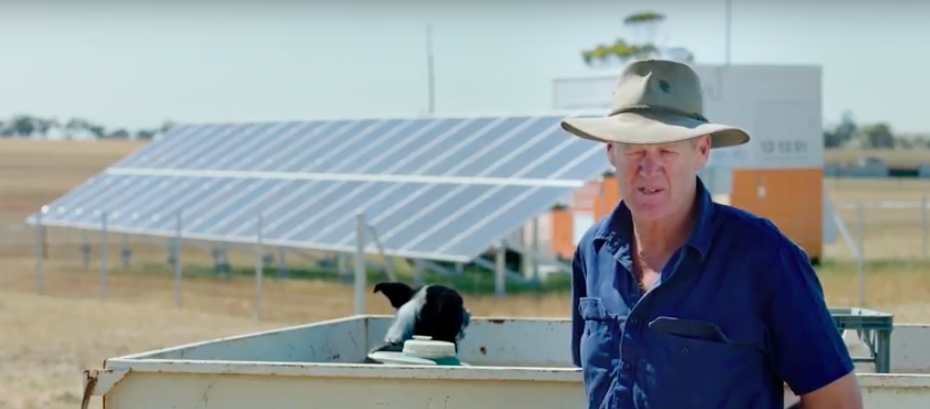Western Power has launched Round 2 of its stand-alone power systems (SPS) program, which will see another 100 units installed at fringe-of-grid locations. The systems, which combine solar and battery technology with a backup generator, are being installed in the Mid-West, Goldfields, eastern Wheatbelt and the Great Southern regions.
The SPS project follows the success of a pilot trial launched at six farms in the Great Southern region of WA in 2016. There were on average 65 hours of outages avoided in the first year, and a whopping 92% of the properties’ power supply could be met by solar PV – buffered by battery storage.
The systems also proved resilient in harsh conditions during local floods in February 2017 as they continued to supply uninterrupted power, while other areas experienced outages due to damage on the network. Overall, the pilot trial significantly improved power reliability with customers avoiding more than 200 hours of power interruptions over the past three years.
In 2018, Western Power moved on to announce that it was expanding the program ten-fold, launching a tender for up to 60 SPS systems within the South West Interconnected Network (SWIS). Round 1 of the SPS project involved installing 57 SPS units across regional WA. Perth-based company Hybrid Systems was awarded the lion’s share of Western Power’s $8.8 million SPS contracts in Round 1 of the program, to install a total of 250kW of solar panels, 220kW of solar inverters and nearly 600kWh of lithium battery energy storage. The company will also be involved in Round 2 of the program.
Servicing the 57 systems for their entire working life will save Western Power almost $6 million, compared to traditional network refurbishment, which would otherwise be needed to ensure reliable power supply to rural properties in off or edge-of-the grid areas. These units are modular and scalable and range from less than 5 kwh, to supply electric fences and dam pumps, to 50 kwh for large-scale agricultural businesses.
“Stand-alone power systems provide an economical alternative to replacing poles and wires in many low population density rural areas,” WA Energy Minister Bill Johnston said. “This project is also boosting local jobs with supplier Hybrid increasing employees from seven to 29, including six apprentices, providing valuable training and skills for young locals.” Johnston said that to further support the deployment of new technologies in the state’s electricity network he was working to drive legislative change through the Electricity Industry Amendment Bill 2019, which includes provisions for the use of new technologies in Western Power’s network, specifically stand-alone power systems and energy storage devices.”
The announcement follows the last week’s release of a much-anticipated report on Western Australia’s transition to a distributed energy future, which found that microgrids and associated technologies have the potential to offer a range of benefits to Western Australia’s power systems and reduce total system costs by deferring, reducing or entirely removing the need to invest in costly pole and wire replacement programs.
Right policy support and regulatory frameworks are essential to support microgrids and facilitate the successful transition to distributed energy systems, the report finds, while on the consumer-level, smart meters and the telecommunications infrastructure required to access real‐time data and control assets will be integral to the successful implementation of new retail products and services and can greatly assist consumers to understand and manage their energy requirements, the report found.
Another off-grid program in Western Australia is run by government-owned regional utility Horizon Power, which became the first utility in Australia to remove parts of its overhead network and replace it with an off-grid renewable energy power solution. Horizon is installing 17 standalone power systems on fringe-of-grid properties east of Esperance which will replace 64 kilometers of unreliable poles and wires.
This content is protected by copyright and may not be reused. If you want to cooperate with us and would like to reuse some of our content, please contact: editors@pv-magazine.com.









By submitting this form you agree to pv magazine using your data for the purposes of publishing your comment.
Your personal data will only be disclosed or otherwise transmitted to third parties for the purposes of spam filtering or if this is necessary for technical maintenance of the website. Any other transfer to third parties will not take place unless this is justified on the basis of applicable data protection regulations or if pv magazine is legally obliged to do so.
You may revoke this consent at any time with effect for the future, in which case your personal data will be deleted immediately. Otherwise, your data will be deleted if pv magazine has processed your request or the purpose of data storage is fulfilled.
Further information on data privacy can be found in our Data Protection Policy.